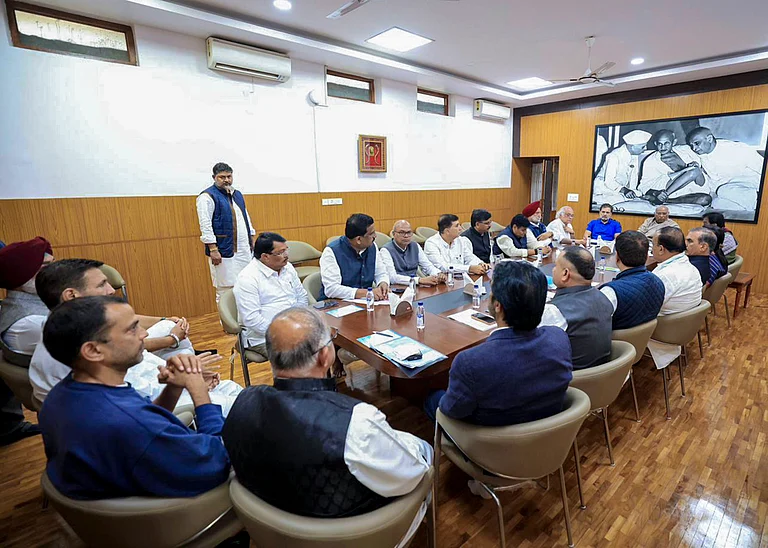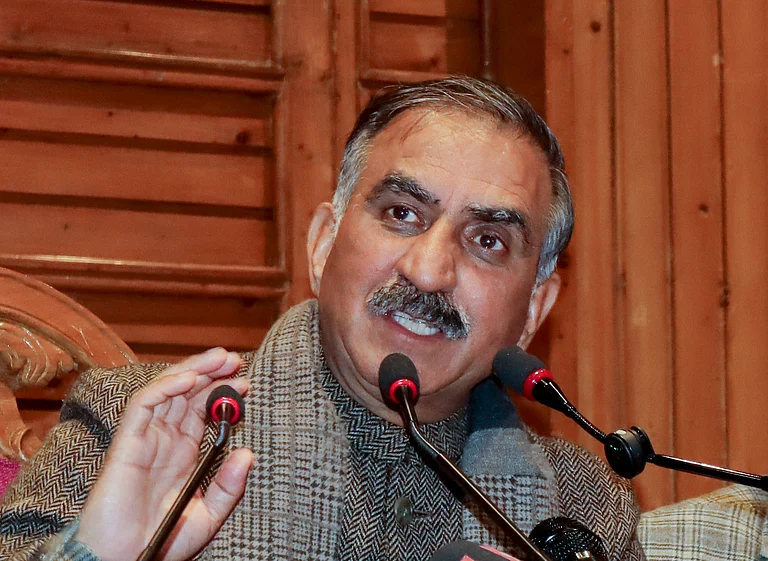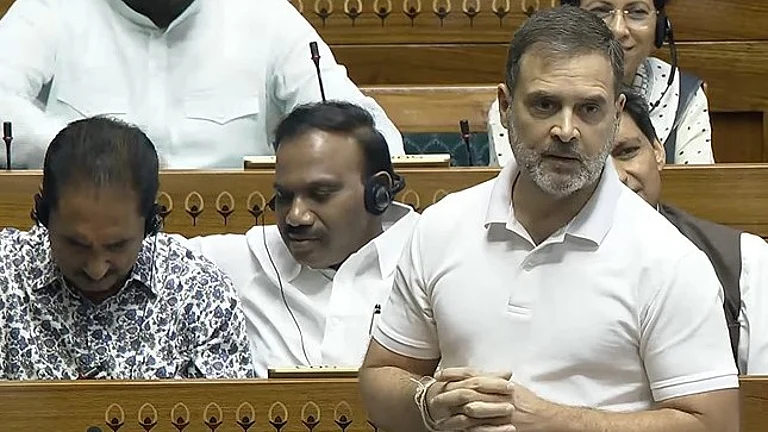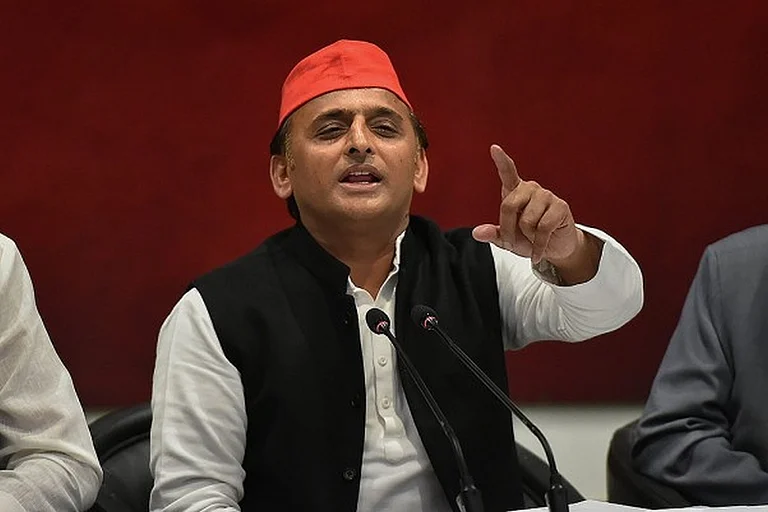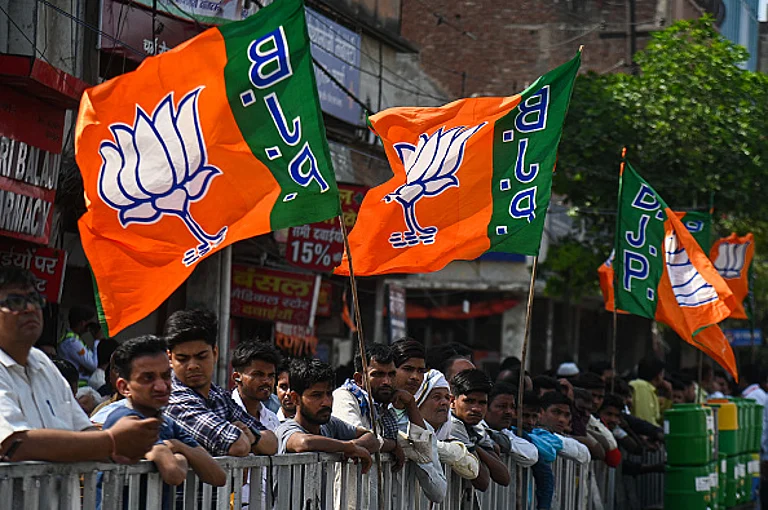At a poll rally in Bijnor held in April in Uttar Pradesh, Samajwadi Party chief Akhilesh Yadav said that a majority of the ‘PDA’ voters - Pichda (backward), Dalit and Alpasankhyak (minority) - were with the party. “The success of PDA is the reason why BJP is failing at its poll math,” Yadav stated. The party, which has played a significant role in politics of the state, is trying to wrest power from two time incumbent Bhartiya Janta Party in the high stakes 2024 Lok Sabha elections. The latter has been in power at the centre since 2014 and in Uttar Pradesh since 2017. Riding high on the glory of the consecration of the Ram Temple in Ayodhya in January, the BJP which has been relying on a mixed strategy of Hindutva, Yogi-Modi factor, social engineering and alliances in UP. However, the party may be facing a familiar demon this time with the resurgence of caste identity as an electoral issue. Coupled with anti-incumbency, caste fragmentation can spell trouble for the BJP which has been aiming for ‘400-paar’ this time.
With 80 Lok Sabha seats, the bellwether state of Uttar Pradesh is not just politically important but also symbolic for the BJP as the epicentre of the party’s Hindutva experiment. It has also been the state where leaders like Kanshi Ram and Mayawati, and later leaders like Mulayam Singh Yadav have led successful anti-caste, socialist movements and parties and even became chief ministers of the state. Across western and Eastern UP, a resurgence of caste identity among voters was noted, a distinction from previous two Lok Sabha elections in 2014 and 2019 in which religious polarisation had remained the biggest poll issue with religious identity taking centerstage in minds of voters.
After six phases of polling in UP, BJP has been facing visible anti-incumbency in several seats across UP. Rancour among Rajputs, one of the core voters of the BJP, remained a highly publicised issue during the initial phases of elections. Ahead of the first phase of voting in Muzaffarnagar, Saharanpur and other parts, Thakur community leaders held several mahapanchayats in which they called for boycotting BJP. The Rajput resentment seemed to be rooted in discontent over political representation, with many accusing the party of neglecting its core voters in a bid to increase its support base among the other dominant landed communities like the Yadavs.
Rajput anger might be the result of a visible shift in focus of the party’s social engineering strategy, as was evident in the pre-poll reshuffle when two OBC faces - Om Prakash Rajbhar, president of the Suheldev Bharatiya Samaj Party and Noniya Chauhan, were inducted into the Yogi Adityanath cabinet.
The party’s decision to pick a second OBC leader - Nayab Singh Saini - to join its rank of 12 chief ministers marks its determined push to consolidate the community's votes and blunt the opposition's attempt to weaken its support base ahead of Lok Sabha polls. Saini was named Haryana CM, three months after the BJP made the surprise pick of Mohan Yadav to replace another Other Backward Classes (OBC) leader Shivraj Singh Chouhan as Madhya Pradesh chief minister. The move aligns with a trend that has accelerated within the BJP following aggressive efforts by the Congress and its allies, such as the Samajwadi Party in Uttar Pradesh and the RJD in Bihar, to attract the OBCs - the largest and politically influential demographic, especially in Hindi speaking states.
There has also been a shift in BJP’s traditional approach toward caste politics which centred around consolidation of Yadav and non-Yadav votes. The replacing of Shiv Raj Chouhan who also hails from a backward community with Mohan Yadav was seen as strategic for UP since the latter belongs to a caste that is predominant in the states of Uttar Pradesh and Bihar. These states collectively hold 120 Lok Sabha seats and witnessed a sweeping victory for the BJP and its allies in the 2019 Lok Sabha polls. Yadavs have a sizeable presence in many other states as well. In 2019, the BSP-SP-RLD combine dealt a blow to the BJP in some seats, though it failed to change the overall performance of the party. This time, BSP is fighting on its own. Analysts like Manindra N Jha had earlier told Outlook that the Mayawati-led party is laying low on purpose with the exception that the BJP will allow it more room during the next legislative assembly election. RLD is also a BJP ally this time.
Nevertheless, as Outlook traveled east to west in Uttar Pradesh, anti-incumbency was visible across sections of marginalised voters as well, including non-Jadav/Jatav castes that have traditionally voted saffron.
Dalit voters in villages of Badaun, for instance, claimed that the fight was ideological and that they were voting to “save the constitution”. Their anger was fuelled by the government’s failure to control price rise and unemployment. In Hathras, the non-Jatav Valmiki community appeared alienated from the party, following the brutal 2019 rape-murder of a 19-year-old girl from the Valmiki community by members of the dominant caste. “We voted for BJP but in the last 10 years, we have been pushed to the brink of survival,” Kuku Kumar Valmiki, a resident of Hathras said. “It is about saving the constitution this time,” he added, stating that he and others in his area were hoping for change.
Support for Mayawati and the BSP seems to be enduring across the 17 reserved constituencies of the state, with sections of its core Jatav voters continuing to support ‘Haati’ irrespective of electoral results. With the BSP not in a position to win any of the seats, however, such sentiments might end up benefiting the BJP by splitting the Dalit vote in seats like Hathras, Phulpur, Nagina and others. In Saharanpur, for instance, BSP has fielded Majid Ali from the Gadda community with an eye on both Muslim and Dalit votes. The Congress’ Masood Ali contesting from the same seat claimed that the BSP had fielded Majid to split the Dalit-Muslim vote. In fact, the Dalit-Muslim unity is something that INDIA alliance has been trying to achieve. In Nagina, young leader Chandrashekhar Azad, contesting independently, is also facing a four-way fight with BJP, BSP and SP with each party relying on delicate caste “sameekaran” to work in their favour.
In Kaushambi, the BJP's incumbent candidate Vinod Sonkar, a surprise pick given the anti-incumbency against him, has been facing anger from Brahmin and Baniya community voters due to his statements against them in the past, videos of which have been circulating online amid polls. Voters also claim alienation from the two time MP who lives mostly in Prayagraj and is believed to be in a faction war with Keshav Prasad Maurya. In Kaushambi, nevertheless, the support of Raja Bhaiya remains crucial. Though previously supporting BJP, this time Raja Bhaiya has decided to remain neutral and asked his supporters to vote for whoever they like, following an alleged fallout between BJP and the strongman. While Raja's meeting with Amit Shah seemed to bolster the BJP's chances, sources within the Samajwadi Party as BJP karyakartas in Kaushambi feel there has been an "understanding" between Raja and SP.
That voters are harking back to caste kinships as a form of political negotiation is perhaps best underscored in the fact that even those who support BJP including its core landowning voters claim that many have been suffering despite voting for the party. Santosh Singh, a farmer belonging to Rawa Rajput community (that has remained in support of BJP) and owner of several acres of land in Yahyapur claims that he supports Yogi and Modi but that the cattle problem in UP since slaughter ban laws had brought many losses to farmers, rich and poor alike. "Stray cattle problem is mostly a headache for farm owners though as we have to spend extra money for labour," Santosh states.
In Saharanpur, in western UP, Arjun Singh, a landowning sugarcane farmer attending a rally to support Congress-INDIA alliance candidate Imran Masood said that the BJP had betrayed Thakurs, who make up about 10-13 percent of the State population. In seats like Muzaffarnagar, anti-incumbency against sitting MP and Jat leader Sanjeev Balyan has been fuelled by Rajput rancour against growing dominance of Jats, who had previously been a Samajwadi Party votebank along with Muslims. “Sainis, Tyagis and some sections of Jats are also upset with the BJP,” Muzaffarnagar based journalist Amit Saini commented, adding that anger among Rajputs could hurt the BJP in seats like Ghaziabad, Meerut, Muzaffarnagar among others.
Moreover, voters feel that the Bhagat Singh, a farmer from Charwa village in Kaushambi, said, “kisaan pareshaan hain,kheti ghaate mein ja rahi hai, hum badlaav chahte hain, jo sarkar kaam na kare 5 saal mein badal jaaye, chahe jiski sarkar ho.” (Farmers are upset, farming is in loss. We want change and we want any government that does not work for us in five years should change, no matter which party).
But what does resurgence of caste mean beyond politics? Dalit-Bahujan residents of UP categorically state that caste never left. “The political wind was blowing in a different direction and caste was not being talked about as much. But marginalised communities continue to suffer,” Ram Kumar, resident of Shabbirpur where five years ago, clashes between Dalits and Rajputs had left one dead and resulted in days of violence and agitations, stated. He added that even now, Dalit villagers are not given permission by authorities to put up a painted, life-size statue of BR Ambedkdar. “We had attempted to put up the statue during Ambedkar Jayanti and that is what led to the tensions in 2017,” he recalled. “Government says caste has been eradicated. But most politicians and government employees are casteist so such things continue to happen,” he added.
Written with inputs from Zaina Azhar Sayeda.



